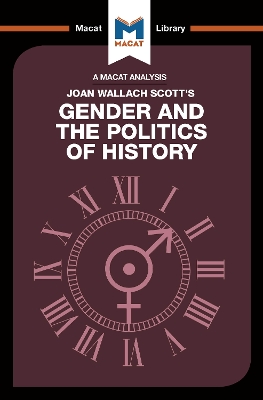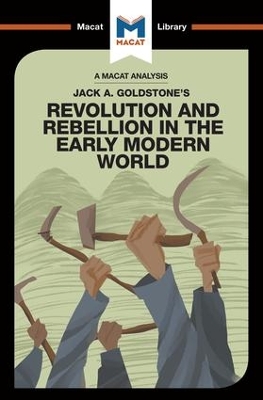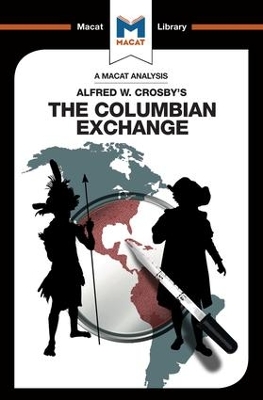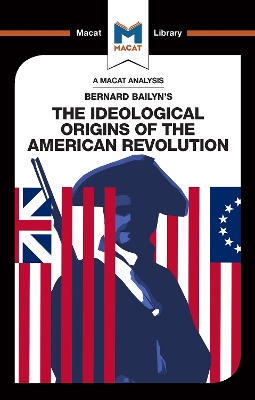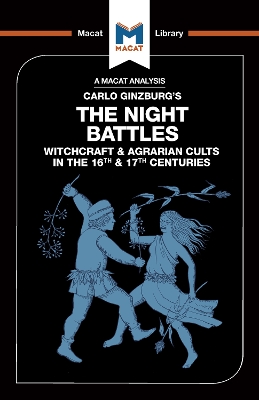The Macat Library
10 total works
An Analysis of Joan Wallach Scott's Gender and the Politics of History
by Pilar Zazueta and Etienne Stockland
Joan Scott's work has influenced several generations of historians and helped make the topic of gender central to the way in which the discipline is taught and studied today. At root a new way of conceptualizing capitalist societies, Scott's theories suggest that gender is better understood as a social construct than as a biological fact.
Scott's original contribution to the debate, however, stems in her use of the critical thinking skill of analysis to understand how the arguments of earlier generations of historians were built in order to fully grasp both their structure and the assumptions that underpinned them. From there, Scott was able to use problem-solving to resolve the issues that emerged from her analysis, asking productive questions focused on better ways to build a model capable of explaining the historical phenomenon of gender difference.
Scott answered these questions by introducing models created by deconstructionist scholars - notably Jacques Derrida, who challenged the idea that any term or concept has a stable or dependable meaning rooted in material reality. She was able, in consequence, to refute that idea that gender inequality is the natural (hence justifiable) consequence of biological sexual differences, and issue a fundamental challenge to the capitalist system itself.
An Analysis of Jack A. Goldstone's Revolution and Rebellion in the Early Modern World
by Etienne Stockland
Understanding why revolutions take place when they do, and as they do, is important in itself. Understanding how they are rooted in the societies they upend – and the ways in which those societies share crucial similarities – is arguably even more so.
The enduring influence of Jack Goldstone's Revolution and Rebellion lies as much in the challenge that it issues to the long-dominant model of ‘western exceptionalism’ (the idea that it was early modern Europe's distinctive history that launched it on the path to world domination) as it does in the book's persuasive account of revolutions rooted in a four stage process that advances from fiscal crisis, through inter-elite conflict and mass-mobilization potential, to the breakdown and re-making of culture and ideology.
It can be argued that this unexpected outcome – one that the author himself did not anticipate – is the product of an acute problem-solving ability, one that made Goldstone particularly receptive to alternative possibilities. His insistence that early modern and modern European and Asian peoples have vastly more in common than was generally recognised, and followed a similar path of advanced organic development that left Qing China as vulnerable to revolution as the France of the Ancien Régime, has not only become a central contention of early 21st century sociology; it has also underpinned the creation of multiple theoretical models that have nothing to do with revolution. None of this would have been possible had not Goldstone challenged himself by asking questions that other scholars had supposed had mundane answers.
An Analysis of Alfred W. Crosby's The Columbian Exchange
by Joshua Specht and Etienne Stockland
One criticism of history is that historians all too often study it in isolation, failing to take advantage of models and evidence from scholars in other disciplines. This is not a charge that can be laid at the door of Alfred Crosby. His book The Columbian Exchange not only incorporates the results of wide reading in the hard sciences, anthropology and geography, but also stands as one of the foundation stones of the study of environmental history.
In this sense, Crosby's defining work is undoubtedly a fine example of the critical thinking skill of creativity; it comes up with new connections that explain the European success in colonizing the New World more as the product of biological catastrophe (in the shape of the introduction of new diseases) than of the actions of men, and posits that the most important consequences were not political - the establishment of new empires - but cultural and culinary; the population of China tripled, for example, as the result of the introduction of new world crops. Few new hypotheses have proved as stimulating or influential.
The Ideological Origins of the American Revolution
by Joshua Specht and Etienne Stockland
An Analysis of Bernard Bailyn's The Ideological Origins of the American Revolution
by Joshua Specht and Etienne Stockland
Historians of the American Revolution had always seen the struggle for independence either as a conflict sparked by heavyweight ideology, or as a war between opposing social groups acting out of self-interest.
In The Ideological Origins of the American Revolution, Bernard Bailyn begged to differ, re-examining familiar evidence to establish new connections that in turn allowed him to generate fresh explanations. His influential reconceptualizing of the underlying reasons for America's independence drive focused instead on pamphleteering – and specifically on the actions of an influential group of ‘conspirators’ who identified, and were determined to protect, a particularly American set of values. For Bailyn, these ideas could indeed be traced back to the ferment of the English Civil War – stemming from radical pamphleteers whose anti-authoritarian ideas crossed the Atlantic and embedded themselves in colonial ideology. Bailyn's thesis helps to explain the Revolution's success by pointing out how deep-rooted its founding ideas were; the Founding Fathers may have been reading Locke, but the men they led were inspired by shorter, pithier and altogether far more radical works. Only by understanding this, Bailyn argues, can we understand the passion and determination that allowed the rebel American states to defeat a global superpower.
An Analysis of Carlo Ginzburg's The Night Battles
by Etienne Stockland and Luke Freeman
In The Night Battles, Carlo Ginzburg does more than introduce his readers to a novel group of supposed witches - the Benandanti, from the northern Italian province of Friulia. He also invents and deploys new and creative ways of tackling his source material that allow him to move beyond their limitations. Witchcraft documents are notoriously tricky sources - produced by elites with fixed views, they are products of questioning designed to prove or disprove guilt, rather than understand the subtleties of belief, and are very often the products of torture. Ginzburg placed great stress on variations in the evidence of the Benandanti over time to reveal changing patterns of belief, and also focused on the concept of 'reading against the text' - essentially looking as much at what is absent from the record as at what is present in it, and attempting to understand what the absences mean. His work not only pioneered the creation of a new school of historical study - 'microhistory' - it is also a great example of the creative thinking skills of connecting things together in an original way, producing novel explanations for existing evidence, and redefining an issue so as to see it in a new light.
